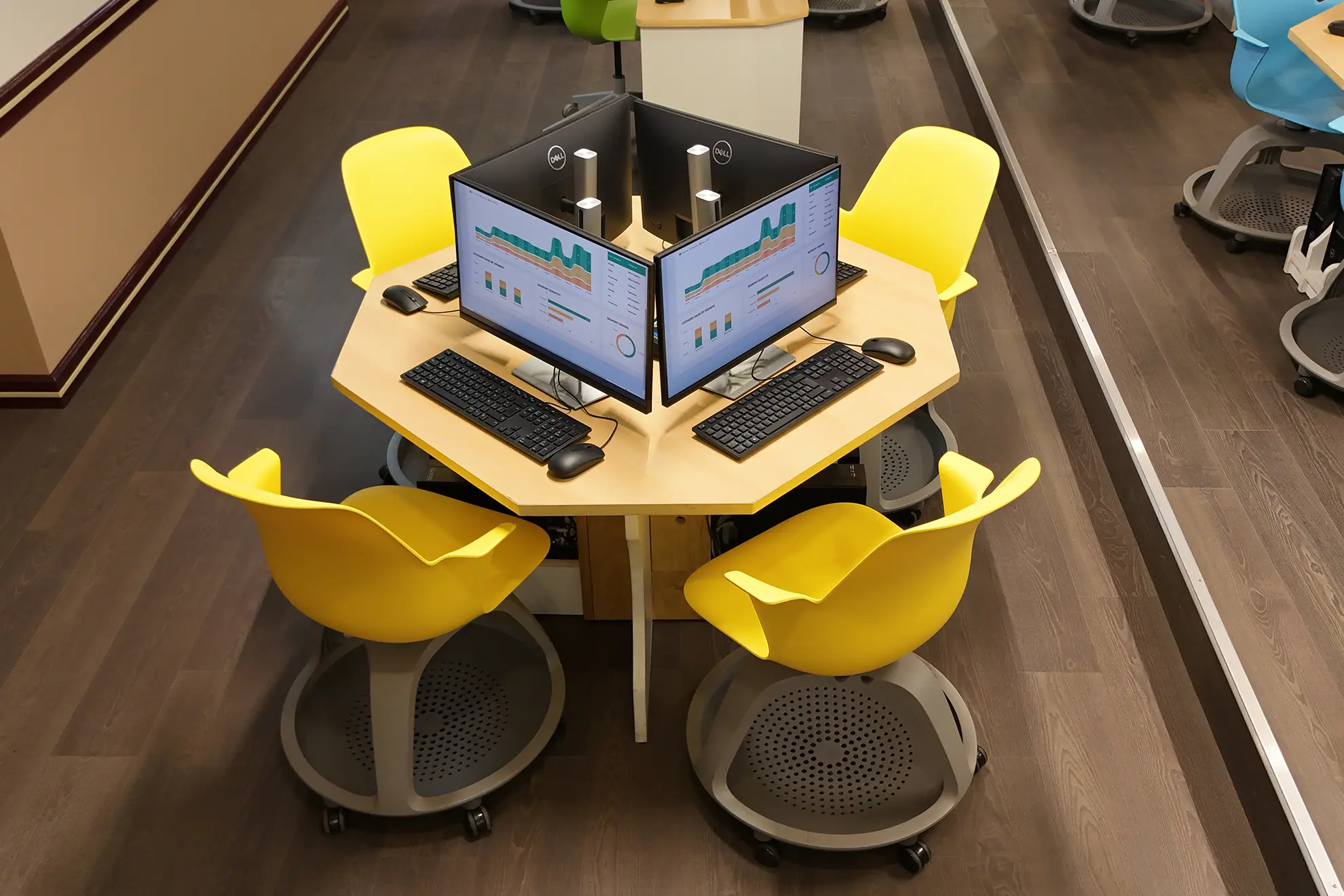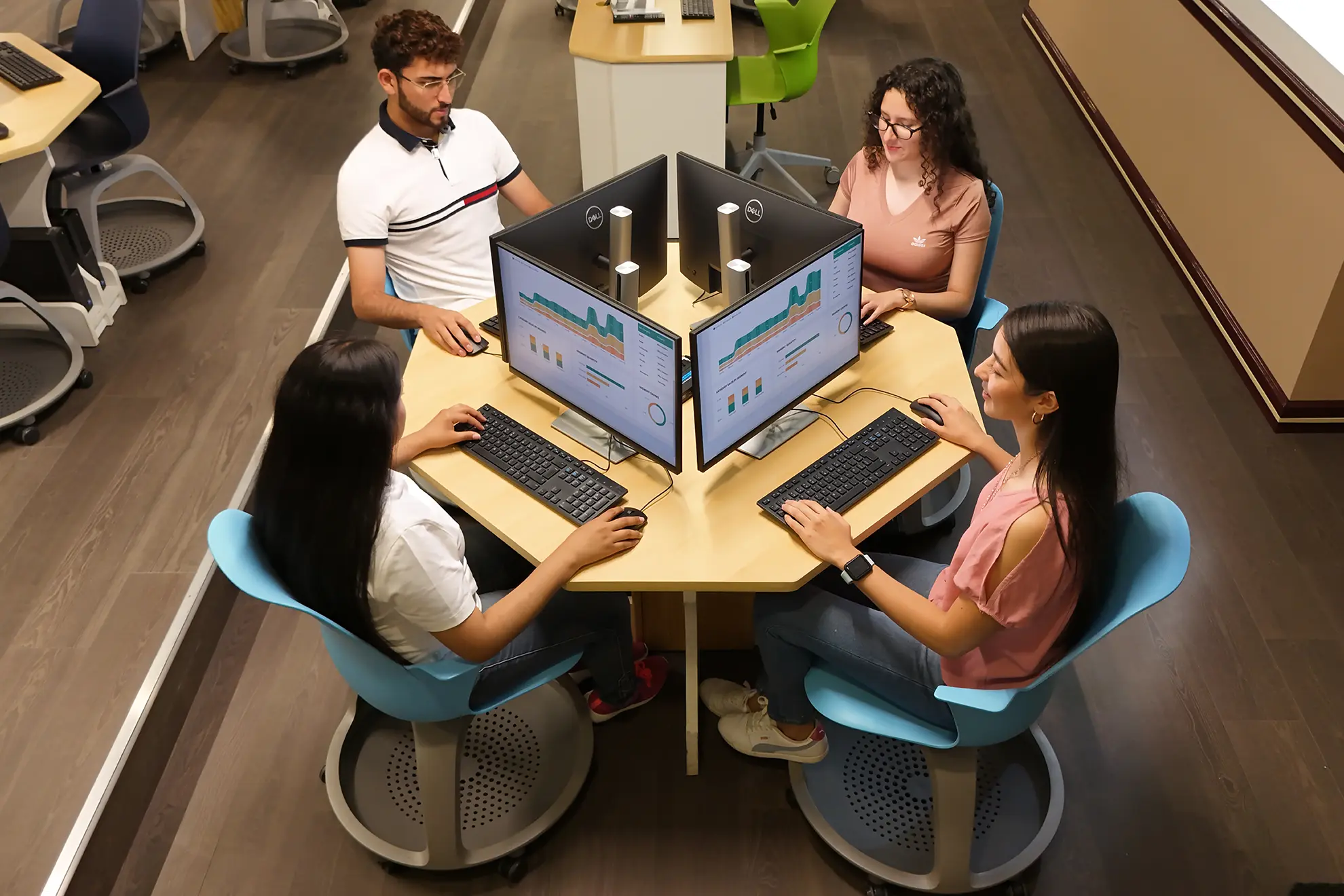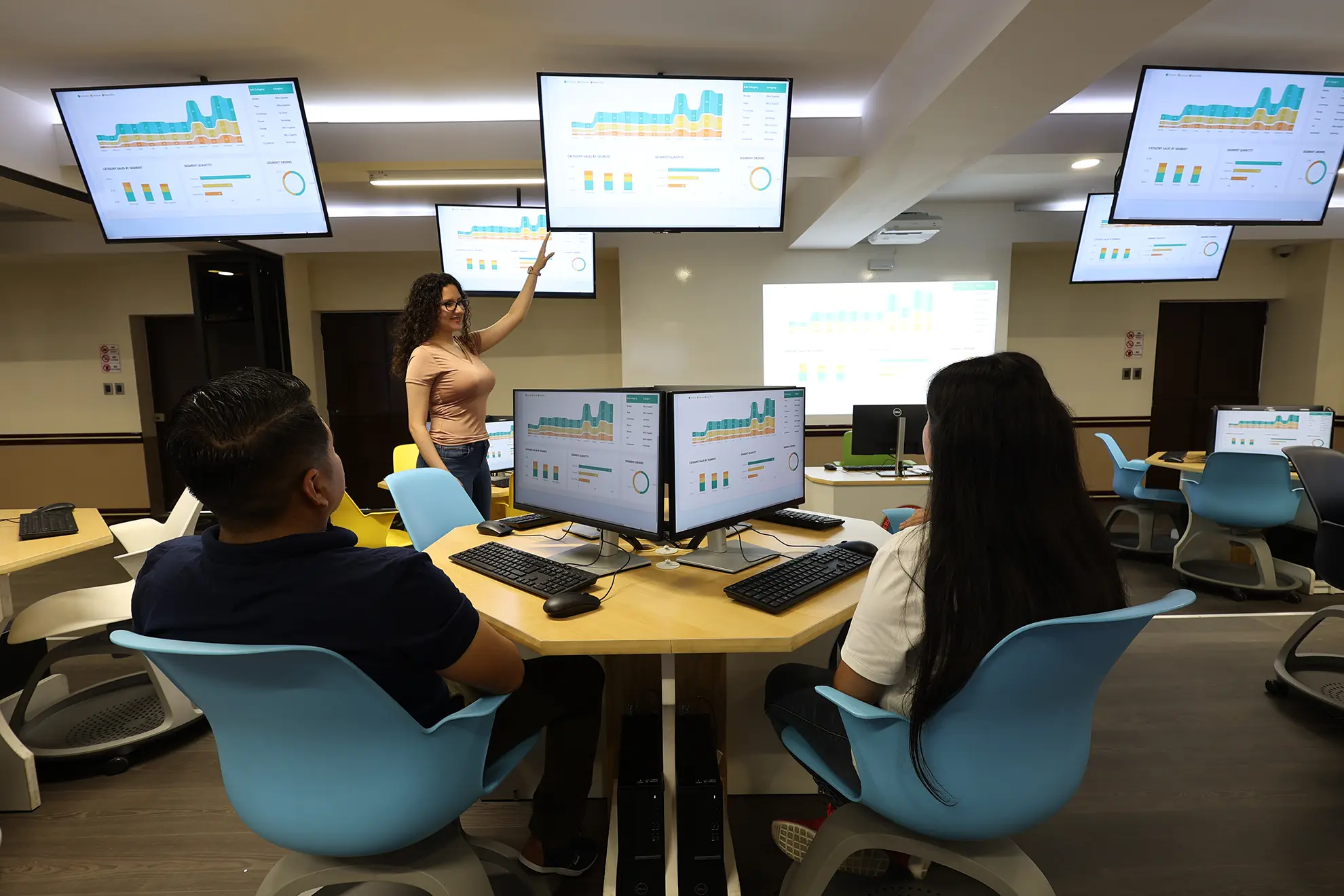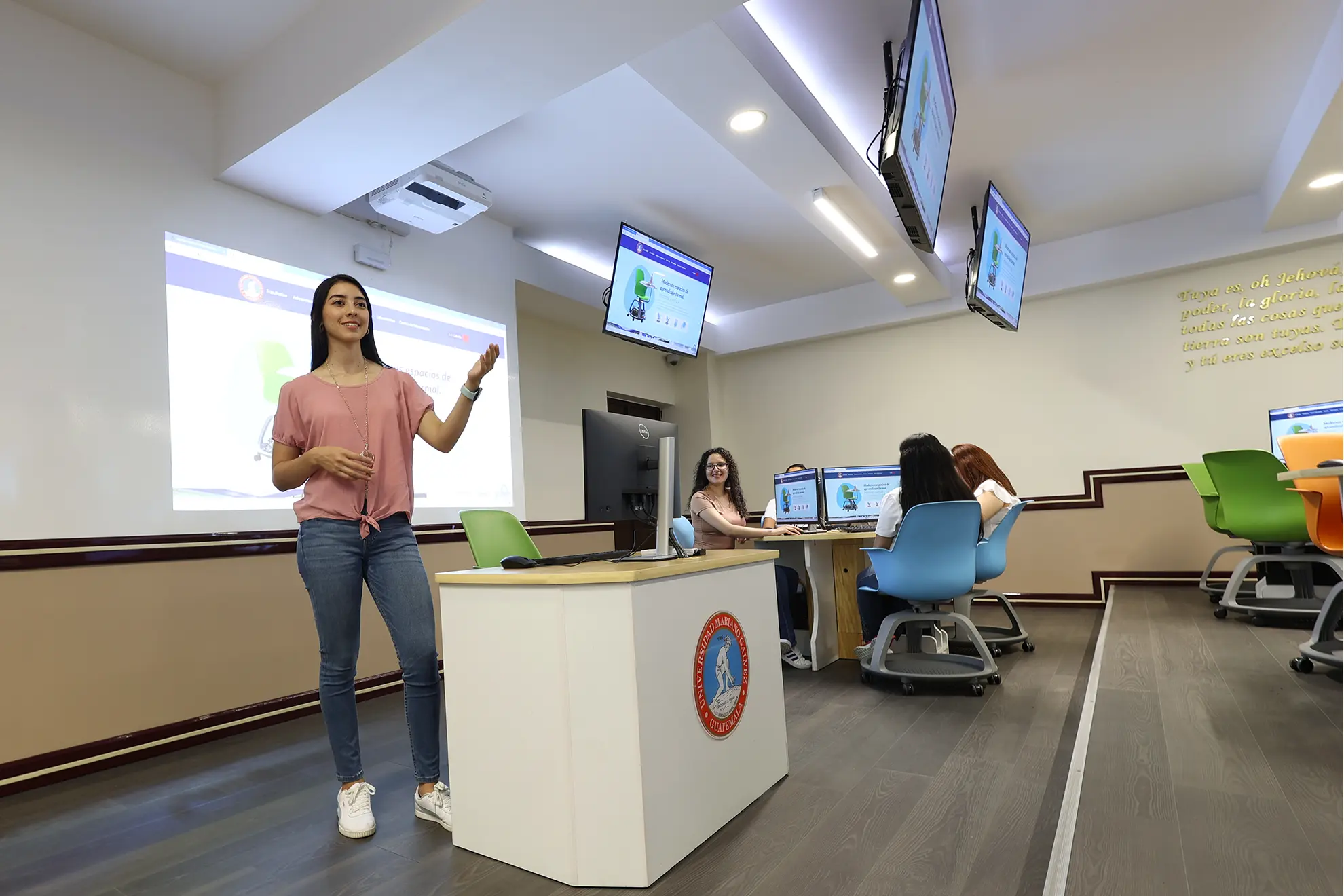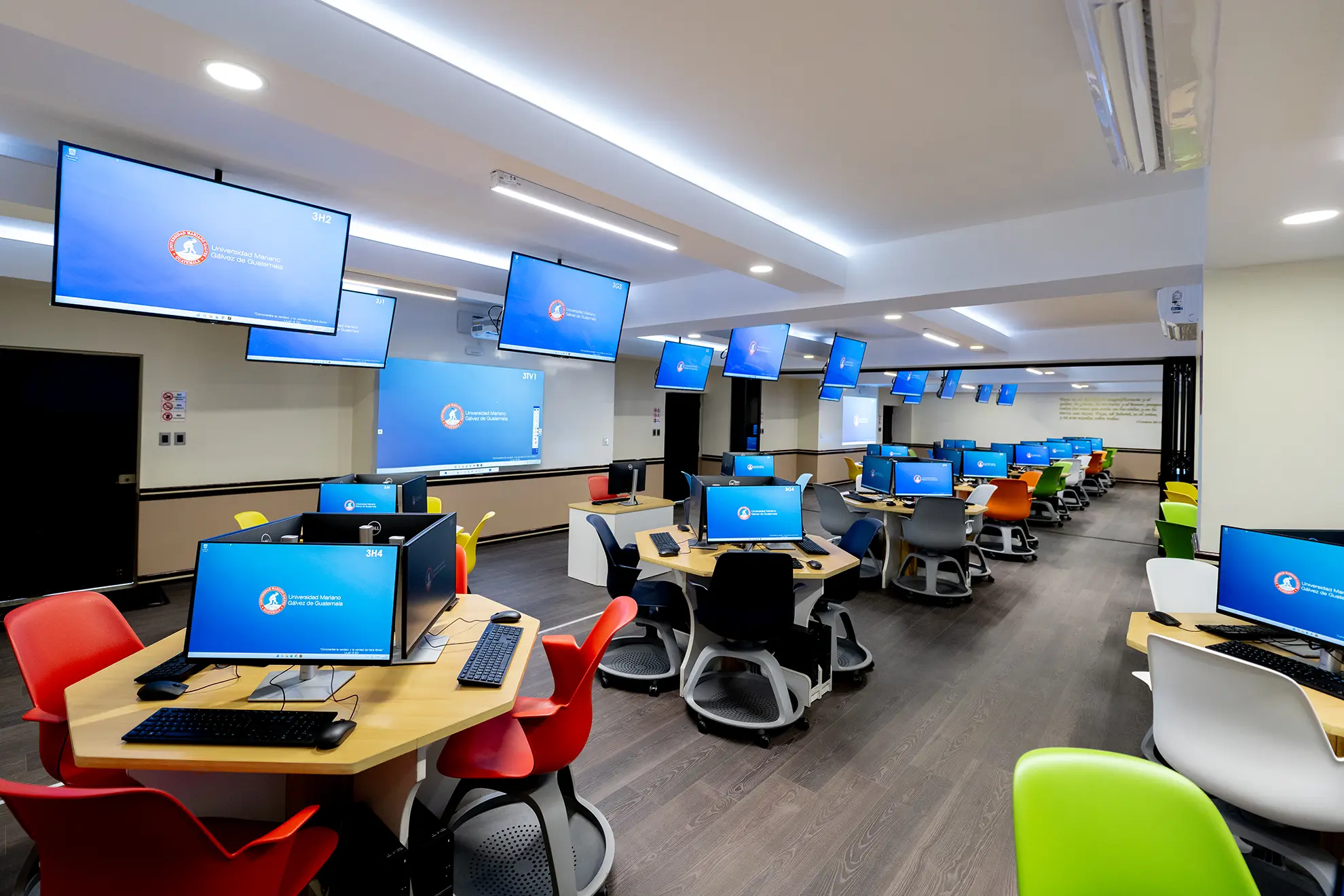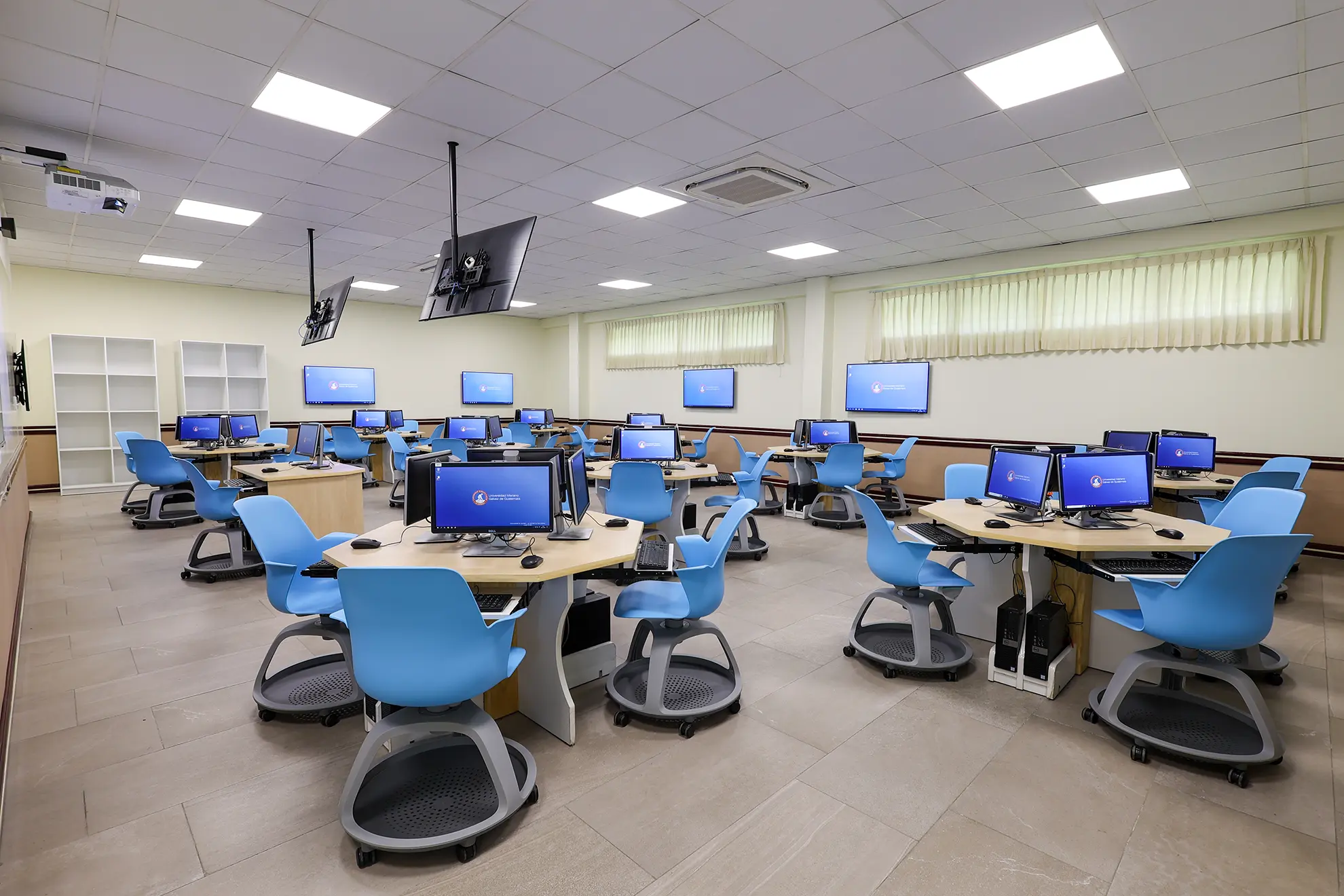Physical
Laboratories
Computers
Courses
in Laboratories
Years of Service
to Education
Campus Laboratories
Laboratories
-
Collaborative
-
Drawing
-
Conventional
-
Virtual
-
Remote
Collaborative Laboratories
Collaborative laboratories are specially designed spaces equipped with advanced technology, including hardware, software, and multimedia resources, aimed at facilitating students' practice related to their field of study or university major. Their primary function is to provide an environment conducive to the development of the collaborative teaching and learning process, allowing students to experiment with and apply the knowledge they have acquired in a practical and collaborative context.
Drawing Laboratory
The drawing laboratory is a highly specialized teaching space designed for courses ranging from drawing to computer-aided design and manufacturing. Equipped with high-performance computers and specialized software licenses in areas such as engineering, architecture, and design, it offers an environment conducive to the development of both technical and creative skills. Its design is meticulously crafted to foster collaboration among students, promoting practical and team-based class sessions. The adaptable furniture facilitates seamless integration between traditional design techniques and cutting-edge technological tools, thus promoting a rich educational experience focused on innovation.
Conventional Laboratory
The conventional computer laboratory is designed to provide users with access to computer workstations arranged in linear rows. It is characterized by optimizing the use of space and facilitating circulation through a straight-line arrangement of workstations. These are equipped with high-performance computers equipped with specialized hardware and software that are suitable for the different university careers. This technological environment allows users to develop technical skills, conduct research and collaborate on projects in a traditional environment, favorable for studying and maintaining concentration.
Virtual laboratory
The virtual laboratory is a cloud computing service that provides students with a predefined educational environment by implementing a networked set of high-performance virtual machines, with individualized access for each student. This preconfigured environment ensures that every student has consistent environments for their professional training. The virtual laboratory is equipped with the necessary technological resources for instruction in the areas of computer science, computing, programming and databases.
Remote laboratory
The remote laboratory is a learning environment in which students access physical machines located in the University's computer labs remotely accessible via Internet. This remote access allows students to use the applications and technological tools required for their courses from any location where there is an internet connection. Each computer lab is equipped with high-performance hardware to ensure an optimal performance during the practical activities remotely performed. In this way, a remote laboratory provides students with a collaborative, hands-on experience that does not require them to be present at the university campus.
Laboratory Rules
In this section the specific rules for the proper use of the computer labs are detailed.

